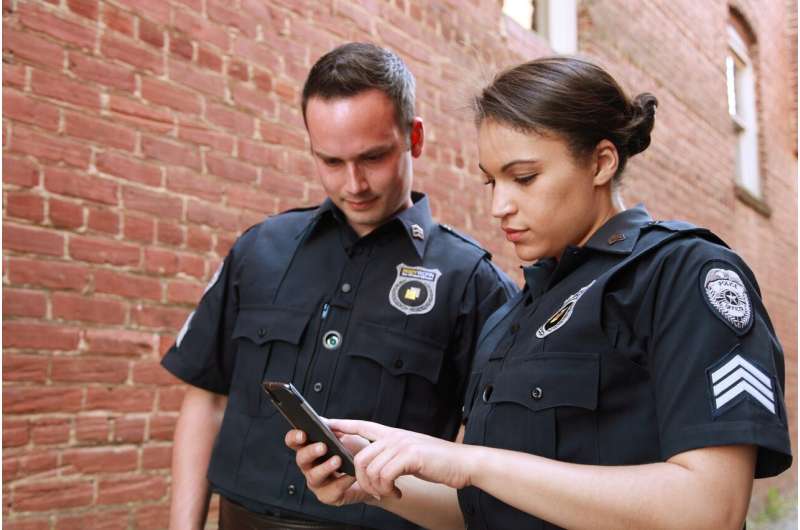Police pullback linked to increases in crime

When police pull back, crime accelerates. But policing alone is no cure-all. That’s the takeaway from a new Denver-area study co-authored by researchers at CU Boulder and collaborators in Nebraska, Michigan, and South Carolina.
The study found that, on average, property and violent crime reports increased 27.1% and 14.3%, respectively, in the city and county of Denver after police scaled back their presence during the COVID-19 pandemic and following the murder of George Floyd.
Crime increased across a swath of Denver neighborhoods after police cut their presence in half in 2020, compared with 2016–19 levels. The median neighborhood experienced four additional violent crimes and 70 additional property crimes. But the impact of police pullback varied greatly depending on the neighborhood, the study found.
“There were large-scale reductions in proactive forms of policing in Denver during 2020,” said co-author David Pyrooz, a CU Boulder sociology professor and a fellow at the university’s Institute of Behavioral Science. “We found that those changes in policing were also associated with increases in property and violent crime.”
The journal Criminology published the study’s findings.
Police reductions and subsequent crime not felt equally
For the study, researchers measured proactive policing through the number of pedestrian stops, vehicle stops, and disorder and drug arrests. They then compared 2020 levels to 2016–19 trends. They separated 2020 into three periods and evaluated both police activity and crime incidents: during the first 10 weeks of 2020, the following 11 weeks (when Denver declared a state of emergency for COVID-19), and the final 31 weeks (following Floyd’s murder and the ensuing social unrest).
They also examined how Denver’s 78 neighborhoods experienced changes in policing and crime rates differently.
“Normally, when there are studies on policing, they’re interested in city-to-city comparisons. Those are important to do, but they really mask the inequality of violence and policing that communities within cities experience,” said Pyrooz.
On average, pedestrian stops declined by 83%, vehicle stops by 85%, drug arrests by 76%, and disorder arrests by 62% in Denver neighborhoods. These reductions primarily occurred after COVID-19 set in and after the May 25 death of Floyd.
According to Pyrooz, neighborhoods with higher concentrations of poverty and disadvantage tend to experience more crime and, thus, higher levels of police activity. As a result, Pyrooz and his fellow researchers expected such neighborhoods would experience the greatest increase in crime from police pullback in 2020. This wasn’t the case.
“We actually found that police pullback was associated with greater increases in crime in more middle to upper-class communities,” said Pyrooz.
Violent crime increased in 55 neighborhoods and decreased in 23, with Central Park seeing the largest increase. Property crime increased in 70 neighborhoods and decreased in only eight. Five Points saw the largest increase in property crime, while Auraria saw the largest decrease.
However, the authors believe this could reflect baseline levels of crime and policing. Affluent neighborhoods in Denver had lower levels of crime to begin with, so any spike they experienced would naturally appear larger. Additionally, neighborhoods with higher crime have higher levels of policing to begin with, so larger scale pullback is necessary before policing effects are detectable.
“Findings like these are important as we continue to debate the appropriate role of policing in the 21st century,” said lead author Justin Nix, distinguished associate professor at the University of Nebraska Omaha. “That is, our study suggests a certain baseline amount of policing is necessary to ensure public safety, but at the same time, less policing doesn’t always equate to more crime.”
Policing is not a cure-all
For Pyrooz, this study was almost a sequel to a previous study he co-authored in 2015 after the killing of Michael Brown in Ferguson, Missouri. The study evaluated if there was a “Ferguson effect” on crime rates within major U.S. cities and found evidence of increases in robbery but not other serious crimes.
“This felt like it followed a similar blueprint. You have a controversial police killing, you have major uprisings taking place across the country, you have people questioning the status quo of safety and justice, and there are similar explanations for the rise in crime,” said Pyrooz. “It’s our job as social scientists to determine what sort of impacts these events have.”
2020 provided an ideal case study to examine the impacts of policing further and, again, showed that crime can increase when policing decreases.
But Pyrooz acknowledges that proactive policing comes with a tradeoff. Sending police to more disadvantaged areas in greater force can result in more arrests, more surveillance, and, in turn, more cynicism toward the law. That can create a negative feedback loop where overpoliced communities don’t trust the police.
“There’s a whole host of safe alternatives that can and should be done that do not require the police to be able to prevent crime. Ideally, communities work together to solve their problems, and the police are the last resort as opposed to the first,” he said.
More information:
Justin Nix et al, When police pull back: Neighborhood‐level effects of de‐policing on violent and property crime, a research note, Criminology (2024). DOI: 10.1111/1745-9125.12363
Citation:
Police pullback linked to increases in crime (2024, February 28)
retrieved 28 February 2024
from
This document is subject to copyright. Apart from any fair dealing for the purpose of private study or research, no
part may be reproduced without the written permission. The content is provided for information purposes only.
Science, Physics News, Science news, Technology News, Physics, Materials, Nanotech, Technology, Science
#Police #pullback #linked #increases #crime
